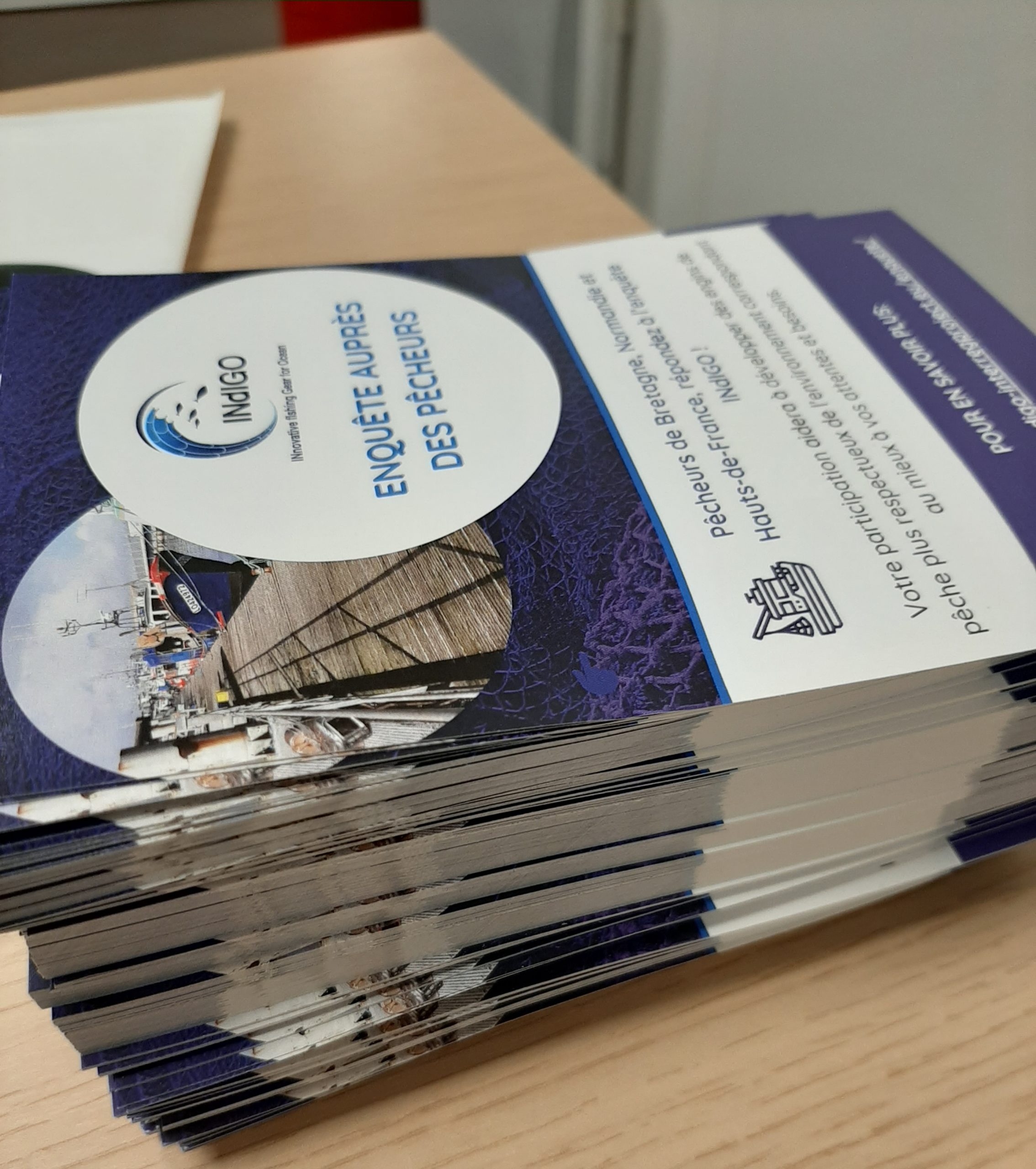INdIGO survey: The majority of fishermen are ready to use biodegradable fishing gear
More than 200 French and English fishermen took part in the survey conducted as part of the INdIGO project between December 2020 and August 2021. The analysis of the results provides important information on the use of plastics in the fishing industry on both sides of the Channel and the potential for fishermen to adopt new biodegradable nets. The majority of the participants in the survey are owners and skippers who use passive gear (traps, nets and lines). Gillnetters were the majority (35%) but trawlers, pot fishermen and dredgers also participated in the study.

Using biodegradable fishing gear: under what conditions?
The results of the survey show that the majority of the participants (73%) would consider using a biodegradable fishing net in the foreseeable future. For the fishermen who participated in the survey, the performance criteria are essential: the biodegradable net must be as efficient as traditional nets, i.e. as efficient, resistant and solid. At the technical level, 76.4% of the fishermen consider that the resistance of the nets is very or extremely influential. Furthermore, for 65.7% of the participants, a reduction in the lifespan of fishing gear is acceptable.
The results of the survey also show that the valorisation of the fishing product and the fishing activity with customers and the general public could encourage the fishermen to adopt the new biodegradable net (e.g. by proposing a sustainability label). For more than half of the fishermen interviewed, it is important that family and customers are supportive of their choice of fishing gear. It also seems that environmental arguments are useful to encourage the fishermen to change to biodegradable fishing gear.
The majority of fishermen have, expressed the will to try the new biodegradable fishing gear (94%) and some of them are already interested in the tests that will take place in the next few months in the framework of INdIGO. Finally, an additional cost of 1 to 10% for the purchase of the biodegradable net is envisaged by half of the fishermen questioned. However, the majority declared that financial aid is essential to start using a biodegradable net.
Abandoned, lost or discarded fishing gear: more information to improve pollution prevention and management
The INdIGO survey also found out more about lost, abandoned or discarded fishing gear. 42% of the fishermen agreed that bad weather conditions cause gear loss, while according to some fishermen, the lack of awareness and training on the issue of used fishing gear can also cause gear loss.
Other factors causing gear loss that were highlighted by fishermen in the survey were inadequate collection facilities in ports and harbours (e.g. insufficient number of bins) (32%) and deliberate discards (31%).
The vast majority (almost 90%) of English and French respondents indicated that they encounter abandoned fishing gear at sea. When derelict fishing gear is encountered, almost all the fishermen in the sample (90%) reported bringing it ashore for disposal. For more than half of the fishermen (56%), this disposal is done via the waste bins for general waste, while 40% use the containers reserved for fishing gear.

Finally, with regard to knowledge of the regulations concerning the management of end-of-life fishing gear, 78% of those questioned stated that they were not aware of the regulations concerning used fishing gear. However, it appears that the younger generations are more aware of the existence of regulations on the management of waste fishing gear than previous generations.
Presentation of the partners involved
The survey was conducted by three partners of the INdIGO project: Lab-STICC, CEFAS and SMEL.
The Lab-STICC laboratory of the University of Southern Brittany and the FHOOX team in particular focus on the study of socio-technical systems and the understanding of the environment in which innovations are hosted (analysis of activities, acceptability, appropriation, etc.).
SMEL, Synergie Mer Et Littoral, is a technical centre located in Normandy which provides technical support to maritime professionals and accompanies the development of production (foresight, research and development). The number of projects responding to environmental issues is increasing and the problem of marine waste is now one of the concerns of these sectors.
CEFAS is a British technical centre that works with the fishing and aquaculture industries. The marine litter team has years of experience in dealing with marine litter and in particular plastic pollution, ranging from the observation of larger debris to the monitoring of microplastics.
